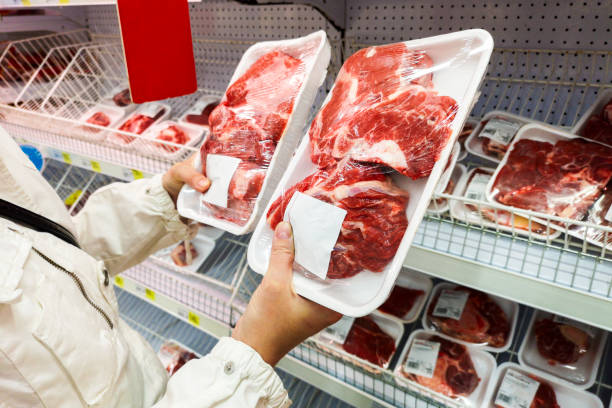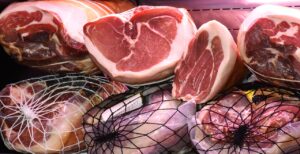A new study shows that pork prices in California are surging as a result of Proposition 12, which prohibits the sale of the meat from animals confined in extreme conditions.
And one group of the population in particular is suffering as a result.
California’s Proposition 12 was passed by the voters in 2018 and is now being fully implemented for pork products. The law establishes new regulations on animal housing for pigs, calves and egg-laying hens, and prohibits California and out-of-state farmers from selling eggs, pork or veal that comes from animals in non-compliant housing.
The National Pork Producers Council previously predicted that consumer prices would increase as a result of Prop 12 because farmers have to implement costly construction of compliant housing — estimated to cost $3,400 to $4,000 per sow. And the data shows it was right.
A new study by industry expert Lon Jaramilla on behalf of the Food Equity Alliance shows as a result of Prop 12, the price of pork has increased and the supply has decreased.
“On average, retail California pork prices have gone up by 20% since July 1st of 2023 — that’s the date of the full Prop 12 implementation,” Jaramilla told KCBS Radio.
More specifically, the study found average increases in retail sales prices on various fresh pork cuts varied in California since July 1, 2023, through February 1, 2024:
• Bacon prices were 16% higher
• Pork rib prices were 17% higher
• Pork loin prices were 41% higher
• Pork shoulder prices were 17% higher
• Fresh ham prices were 20% higher
In actual dollar increases from pre-July 1, 2023 to post-July 1, 2023:
• Bacon increased from $6.46/lb. to $7.74/lb.
• Pork ribs increased from $3.12/lb. to $3.64/lb.
• Pork loin increased from $3.49/lb. to $5.12/lb.
• Pork shoulder increased from $2.04/lb. to $2.54/lb.
• Fresh ham increased from $1.87/lb. to $2.29/lb.
As a result of price increases, the study says California’s share of national fresh pork consumption has declined, falling from 10% to less than 8% as of January 31, 2024.
Julian Kennedy, president of the Hispanic Chambers of Commerce, says there are inequities here.
“Ultimately, Californians and small businesses primarily owned by persons of color are being heavily impacted as pork dishes make up a main staple in a variety of ethnic dishes, snacks, and other food products,” said Kennedy.
According to the study, the California consumers most negatively impacted by higher pork prices are younger, more diverse, and lower income.
“Pork is an important, if not primary, source of protein for African American, Asian American, and Hispanic/Latino households, markets, and ethnic
restaurants across the California markets considered,” the study noted. “Additionally, Millennials and Gen X generations make up a large share of California pork consumers.”
Meanwhile, proponents of Prop 12 say confinement of animals in the food system carries significant public health risks. The bill is projected to improve the lives of almost a million pigs and 40 million egg-laying hens per year.




